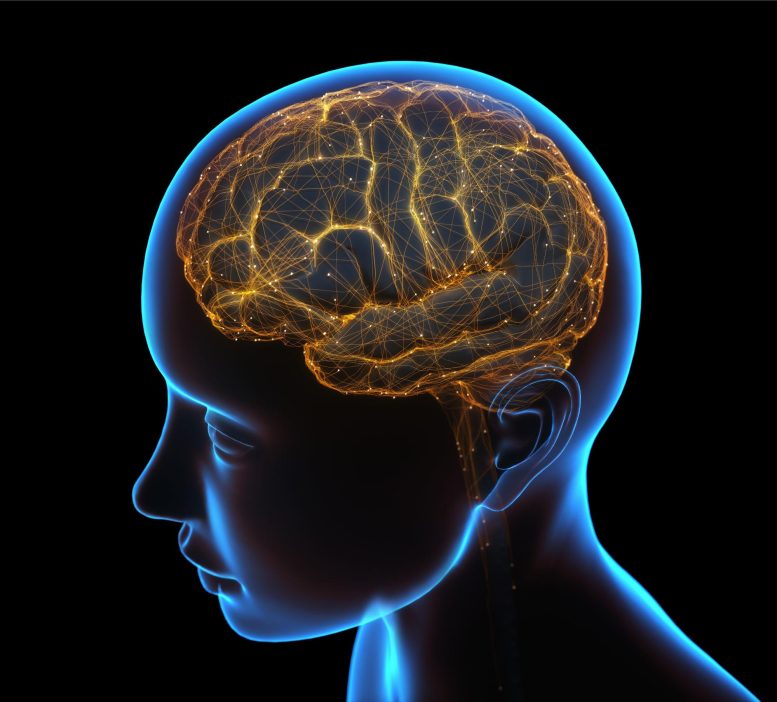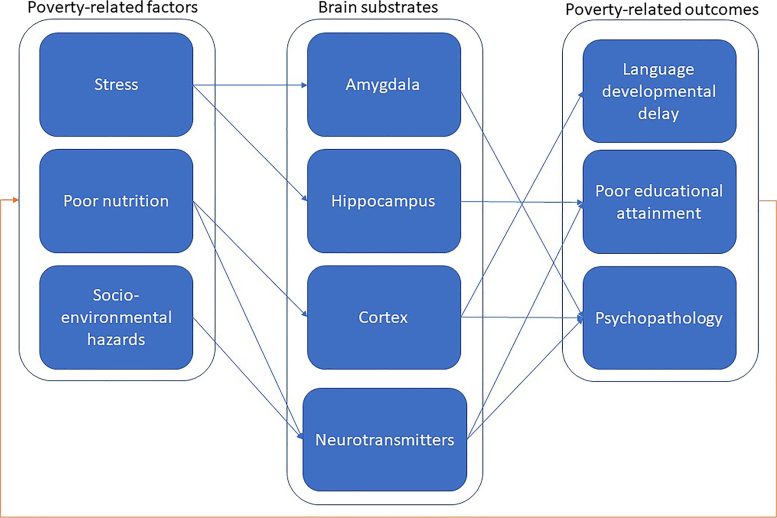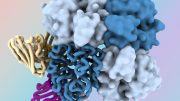
A new review highlights how poverty and low socioeconomic status significantly influence cognitive development, mental health, and educational outcomes, suggesting that these factors contribute to a cycle of generational poverty. It calls for comprehensive interventions to address these far-reaching impacts.
Research connects low socioeconomic status to brain alterations impacting educational achievement, mental health, and language development.
What influences mental health, academic achievement, and cognitive growth? A recent review published in De Gruyter’s Reviews in the Neurosciences indicates that poverty and low socioeconomic status (SES) are significant contributing factors. While previous research has explored the individual impacts of poverty on the brain and behavior, this review introduces the first integrated framework. It synthesizes evidence from various studies to directly connect brain alterations caused by low SES with behavioral, pathological, and developmental outcomes.
SES refers to the social standing of an individual or family, and involves factors such as wealth, occupation, educational attainment, and living conditions. As well as affecting day-to-day life, perhaps surprisingly SES can also have far-reaching consequences for our brains that begin in childhood and persist into adulthood.
So, how can poverty and low SES change the brain? The review examines the negative effects of poor nutrition, chronic stress, and environmental hazards (such as pollution and inadequate housing conditions), which are more likely to affect low-SES families. These factors can impair the brain development of children, which in turn can influence their language skills, educational attainment, and risk of psychiatric illness.
Stress and Its Impact on Learning
For instance, families with low SES are more likely to experience increased stress levels, and these can affect their children from an early age. Sustained stress can reduce levels of neurogenesis — the growth of new neurons — in the hippocampus, which may impair learning abilities and negatively affect educational attainment and career opportunities in later life.

A framework of poverty-related factors and future consequences, such as delay language development, poor educational attainment, and neural abnormalities. Credit: Eid Abo Hamza et al./De Gruyter
The unified framework proposed by the researchers also helps to explain generational poverty, which can leave the children of SES families unable to escape their situation when they grow up and become parents themselves. This vicious cycle can be hard to break.
Interestingly, the researchers provide an extensive list of proposed studies that could test the validity of their framework and find new ways to break the generational poverty cycle. These include focusing on the effects of low SES in specific brain regions, and identifying techniques to enhance the performance of affected children in school.
The review is timely, as inequalities in society widen. Identifying specific mechanisms behind generational poverty could help researchers and policymakers to develop new early interventions. The new framework takes account of the multifactorial nature of generational poverty, and could pave the way for more holistic and sophisticated societal interventions that acknowledge this complexity.
“This research sheds light on the profound ways in which poverty and SES affect not just the present living conditions of individuals, but also their cognitive development, mental health, and future opportunities,” said Dr. Eid Abo Hamza of Al Ain University in the United Arab Emirates, who is first author of the review. “By understanding these relationships, society can better address inequalities and support those in disadvantaged situations, potentially leading to interventions that can help break the cycle of poverty.”
Reference: “The impact of poverty and socioeconomic status on brain, behaviour, and development: a unified framework” by Eid Abo Hamza, Richard Tindle, Simon Pawlak, Dalia Bedewy and Ahmed A. Moustafa, 15 April 2024, Reviews in the Neurosciences.
DOI: 10.1515/revneuro-2023-0163









Be the first to comment on "Rewiring the Brain: Poverty Linked With Neurological Changes That Affect Behavior, Illness, and Development"